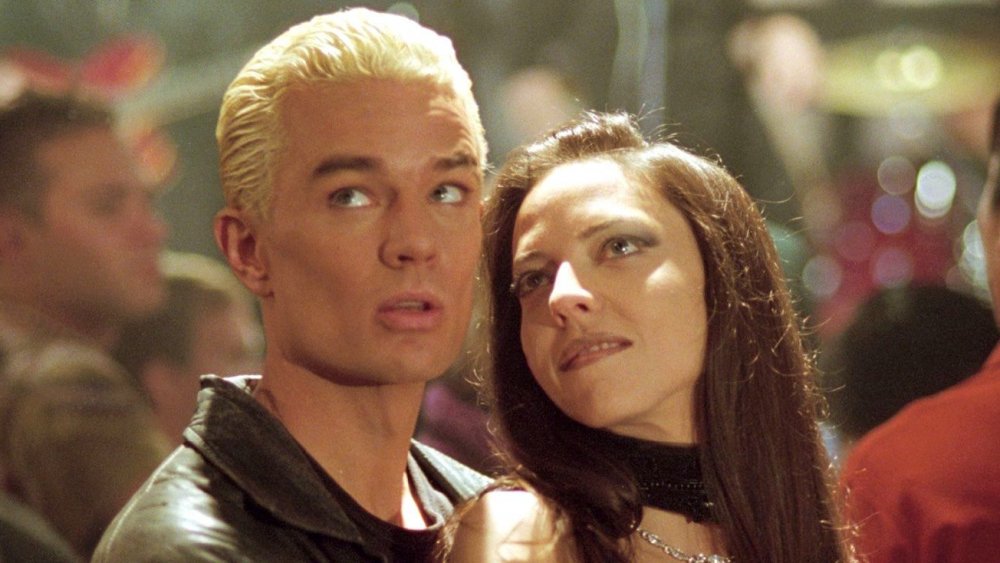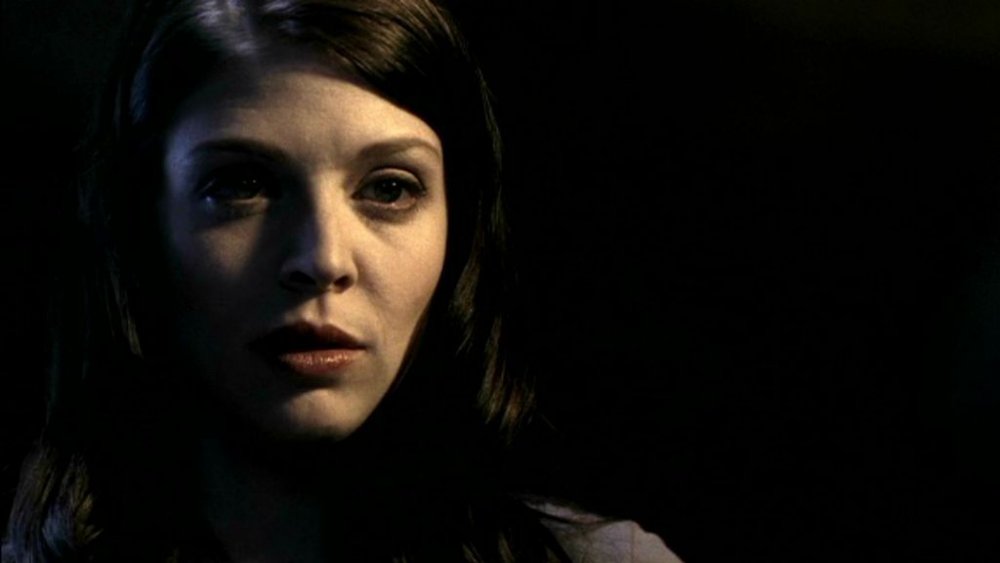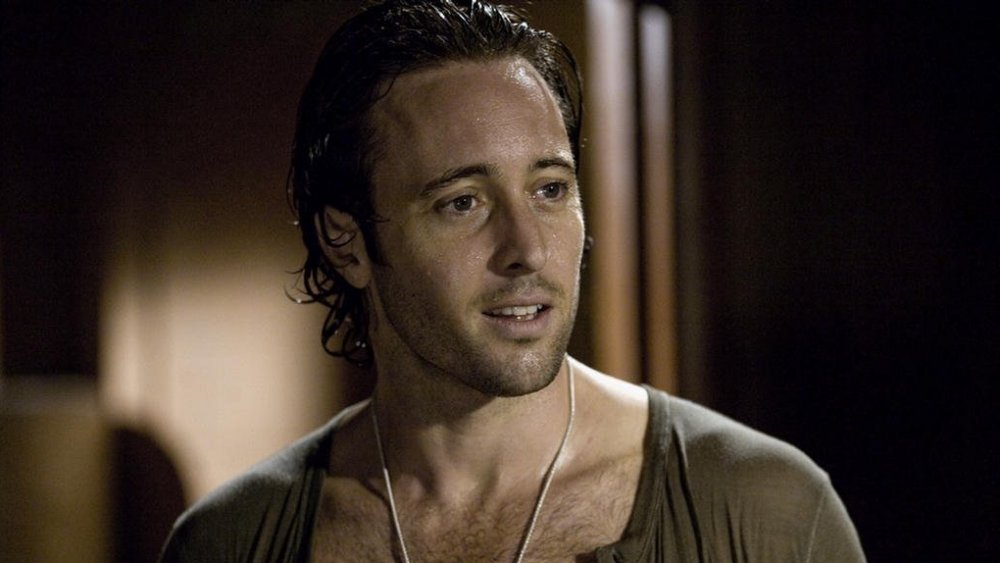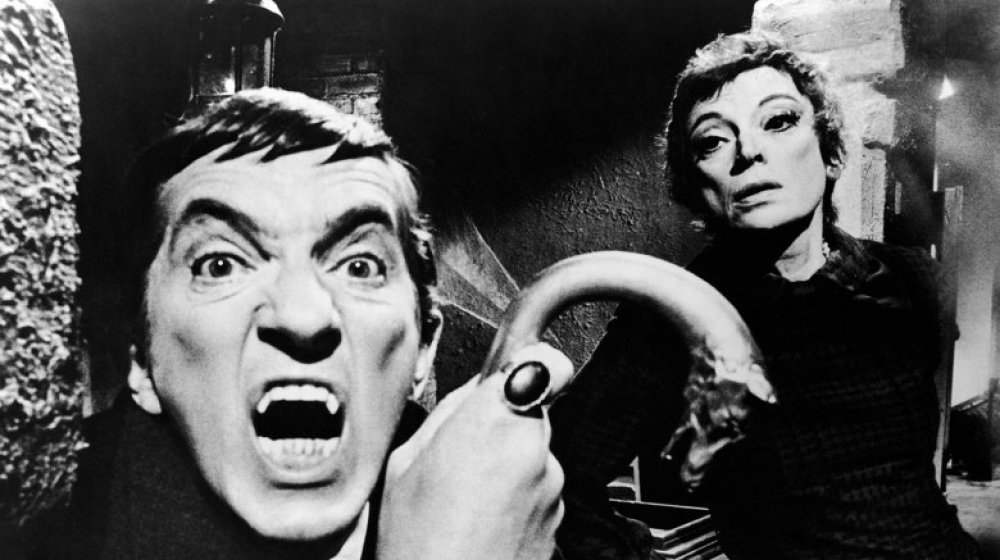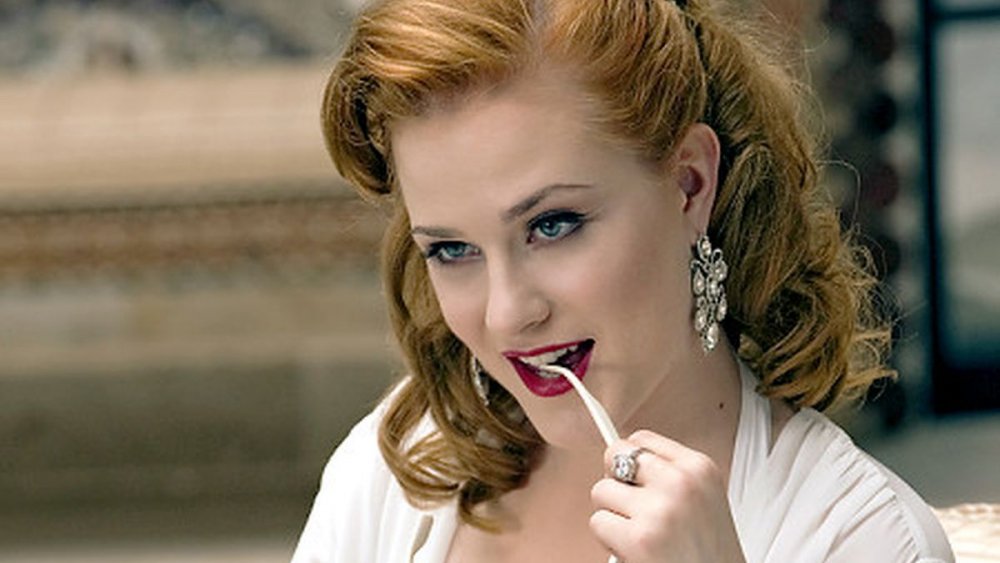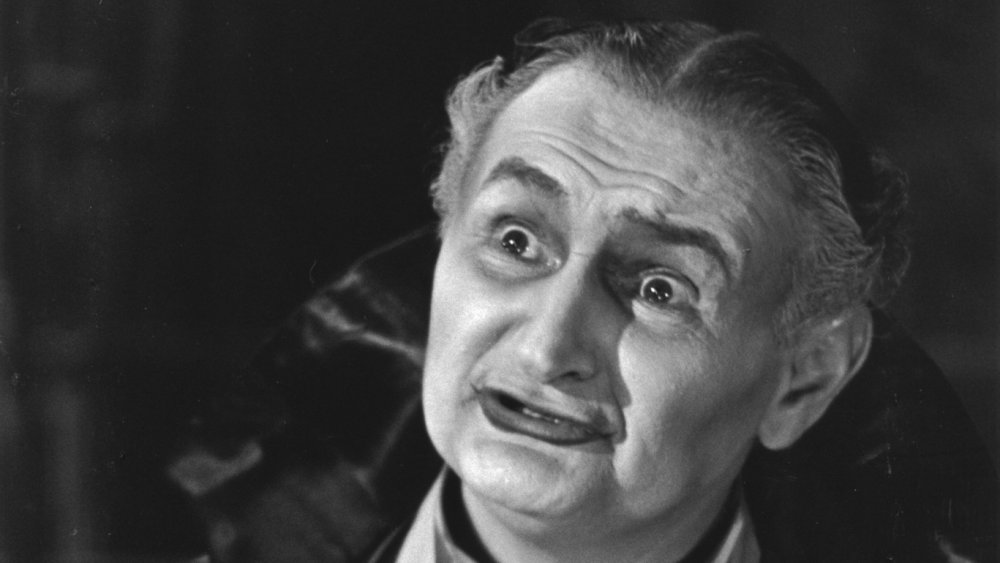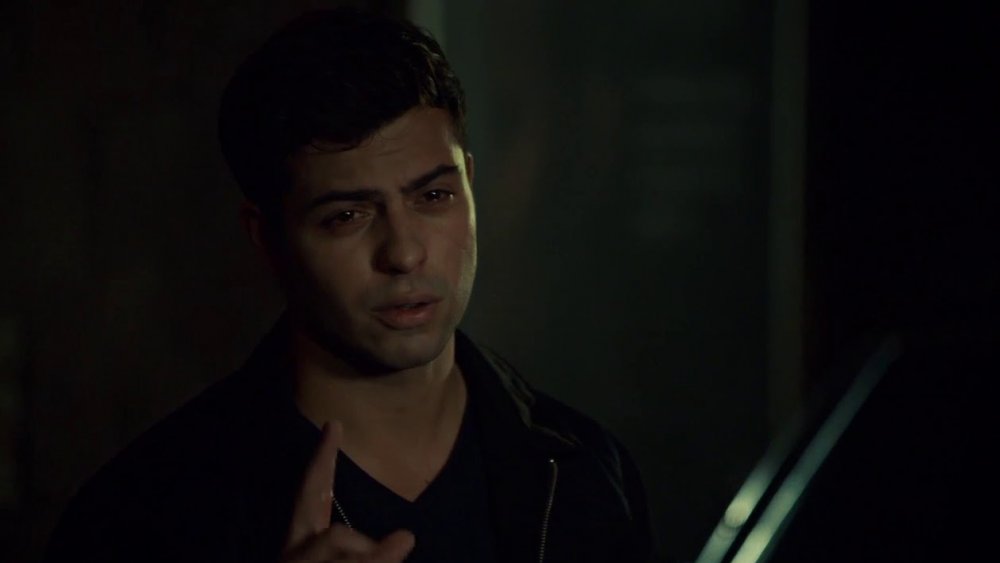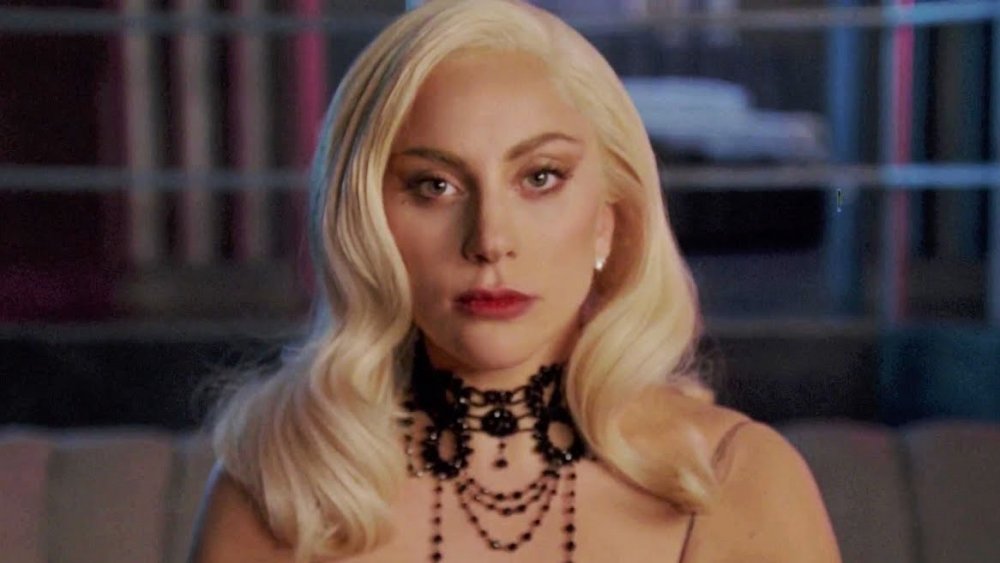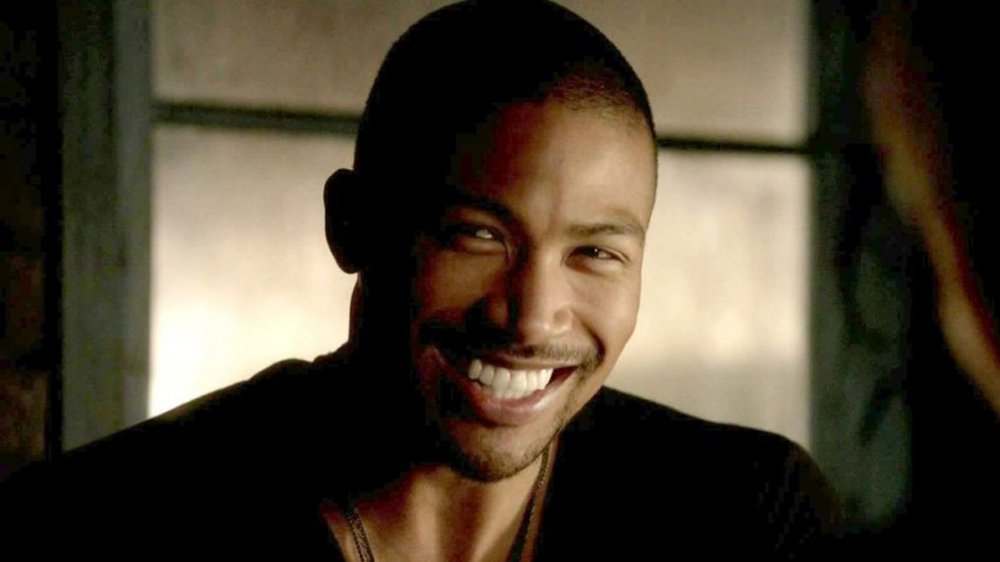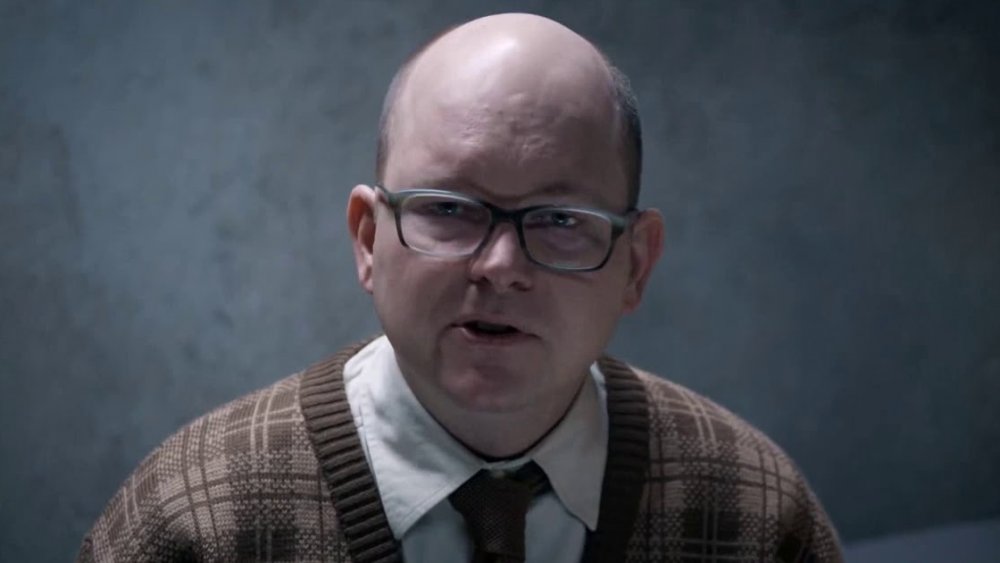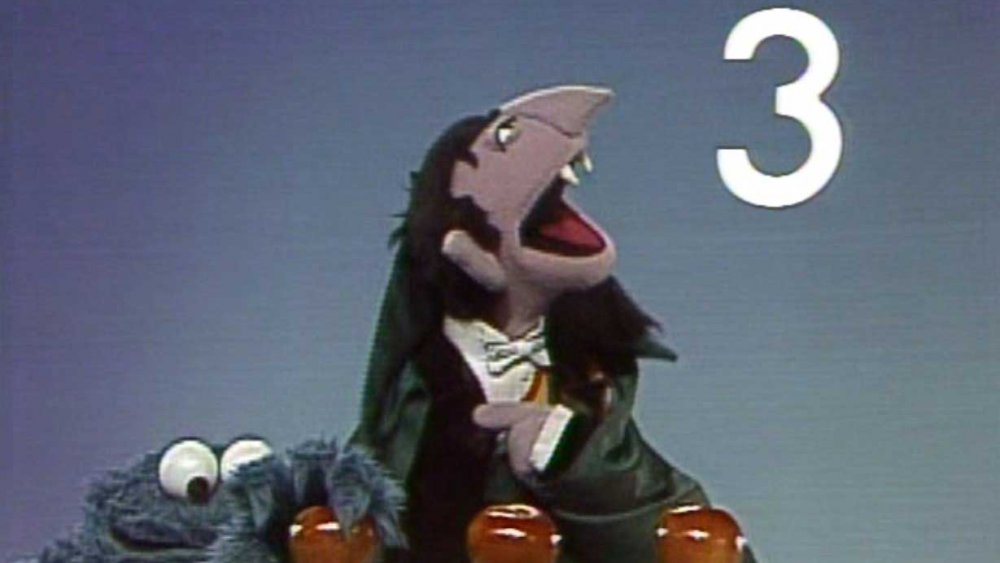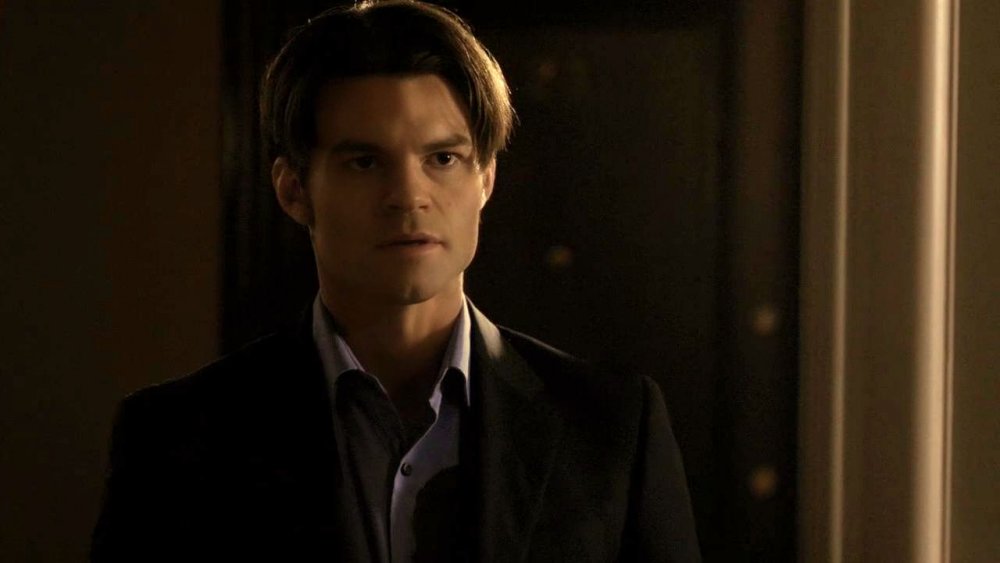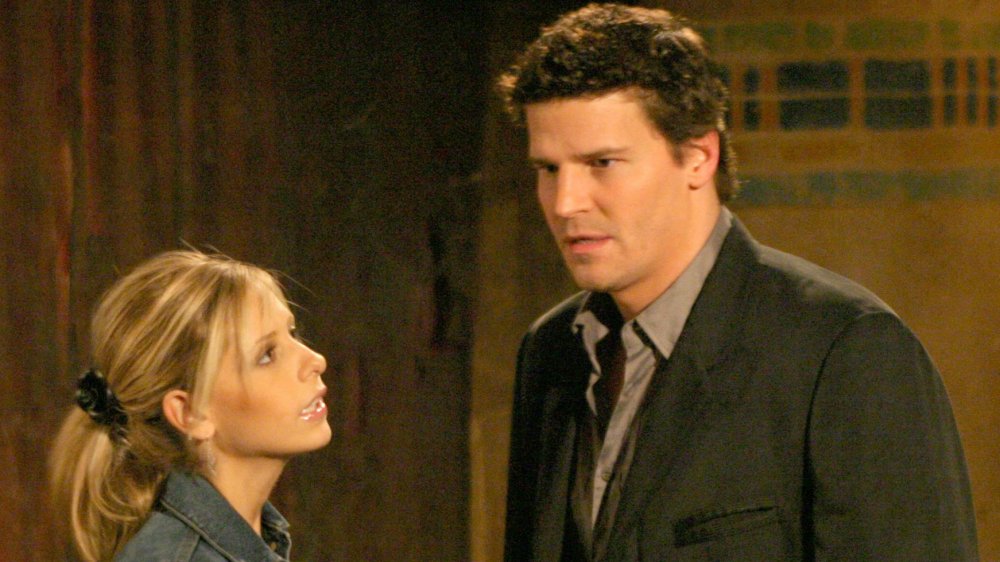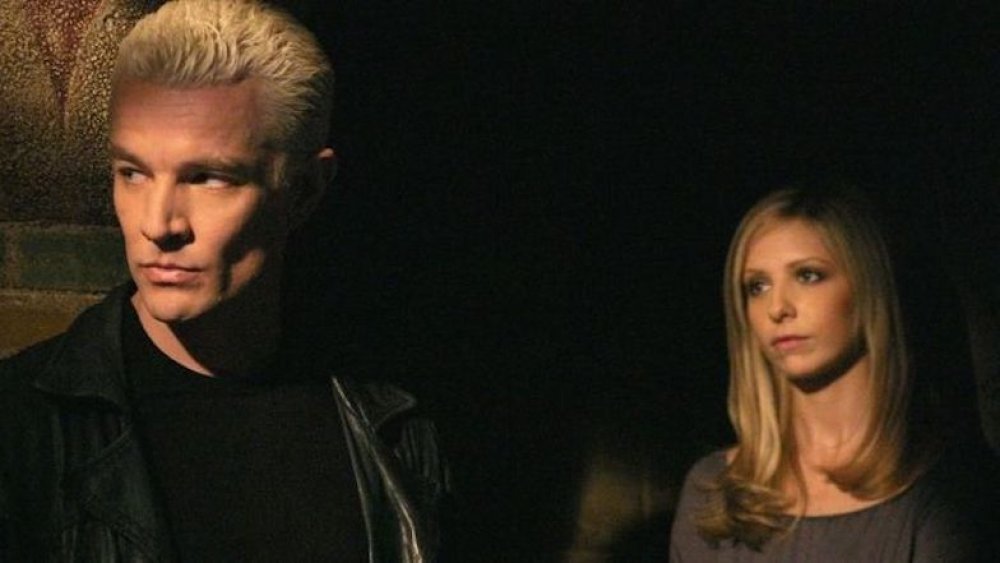The Best TV Vampires Ranked
Vampires have been haunting folklore, history, and tales of darkness throughout history, with numerous legends of blood-drinking and transformation popping up before anyone even coined the term "vampire." Eventually, these creatures made their way into modern-day pop culture, but while they've been prowling the pages of literature and gliding through movie theaters for decades, many of these undead monsters have been seducing fans and hypnotizing audiences through television screens.
These bloodsucking beasts have shown up in TV shows of all genres, from comedy and drama to romance and horror. And if you were to ask a fan to pick the best of the best, well, that's a discussion with some serious stakes (pun intended). But today, we're going to give it a go and determine which of these characters have truly left their bite marks on television history. So, crawl out of your coffin and stay away from sunlight as we rank TV's best vampires.
Lenore proved not all vampires are bad
Lenore may seem like an insignificant character in the grand scheme of Supernatural's 15 seasons of saving people and hunting things. However, despite the popularity of vampy fan-favorites like Benny and the Alpha Vampire, Lenore did what no creature managed to do before — get the Winchesters to ditch their "must-kill" mentality when it comes to monsters.
Buffy alum Amber Benson plays the soft-spoken, sweet Lenore, proving that not all monsters are evil. Her nest refuses to drink human blood, only resorting to violence when attacked. Unlike bloodsuckers such as Gordan Walker, Lenore knows right from wrong even in her darkest hours, and she never wants to harm anyone. Supernatural fans often watch the brothers (Dean especially) struggle when it comes to their black and white view of monsters, and Lenore is the first "monster" to challenge them on that. They've mentioned her a few times throughout the show when deciding how to handle other creatures that don't seem evil, proving that she made a long-lasting effect on the boys. The show is all too eager to take away happy endings, though, opting to bring back Lenore for a bummer of a reunion. Why, Supernatural?
Mick St. John was a vampire detective with a crazy backstory
Before we had Satan as a detective in Lucifer, we had vampire Mick St. John moonlighting as a P.I. to keep the L.A. streets safe from human and vamps alike. When Mick says "'til death do us part" to his wife, Coraline, he isn't banking on her taking the vow quite so literally when she turns her unsuspecting husband into a vampire on their wedding night. That would've been a neat story to tell the grandkids — if they could have any. Instead, about 40 years into their shockingly failing marriage, Coraline kidnaps a young girl named Beth. Of course, Mick is even less chill with his wife kidnapping a child than he was with her turning him immortal, and it turns out to be the final nail in the coffin of their marriage.
Cut to a couple of decades later when Mick runs into adult Beth, now a reporter, at a crime scene. Obviously, romance ensues, despite their extremely cringe backstory. But CBS canceled Moonlight before it really had the chance to amp up. With a rich history, flashback sequences, great worldbuilding, and a lot of potential, actor Alex O'Loughlin's first series lead never got the chance to shine. In addition to its early cancelation, perhaps aiding the show's early demise was its 2007 debut, which came only three years after Angel ended. Fans might've needed a bigger break between two vampire investigative shows based in L.A. It's a bummer, too, because the series was setting itself up to be a pretty great addition to the ever-changing catalog of vampire TV.
Barnabas Collins is an OG TV vampire
Hell may hath no fury for a woman scorned, but hell really hath no fury for a witch scorned. When Barnabas Collins from the '70s series Dark Shadows has an affair with the witch Angelique and refuses to leave his betrothed for her, she curses the future vampire. The verdict? She causes him to fall ill and makes his fiancée fall for his uncle.
Leading up to one of the most bizarre vampiric origin stories to date, Angelique later dooms Barnabas with a curse to make all of his lovers die and for him to never rest. Angelique gets her wish, as she turns Barnabas into an undead monster, but she falls prey to the trap of her own making. As she loves Barnabas, she dies at his hands.
The new vampire's batty journey follows a pattern similar to Dracula, in trying to find his reincarnated lost love throughout time. With a self-loathing to rival even the broodiest vamps, Barnabas' trials hold up even today, which became apparent when Tim Burton turned the series into a film in 2012 starring Jonny Depp.
Sophie-Anne makes the world of True Blood a crazy, fascinating place
There's nothing quite like being "saved" by a guy who turns you into a vampire and forces you into sex work. While her maker is the literal worst, True Blood's Sophie-Anne Leclerq rules Louisiana with a perfectly manicured fist. While the vampire queen doesn't show up in the series until the second season, she cements herself as one of the show's quirkiest vampires.
With a penchant for the finer things in life and the essence of '20s starlets like Marilyn Monroe, the 520-year-old vampire seems to lust after her former humanity — aching to touch sunlight and frequently taking human lovers. Like many characters on True Blood, her sexuality is fluid. The bisexual vampire queen often takes lovers of any gender, often preferring women (which usually isn't the case for female bisexual representation in film and TV).
While even older vampires often come to her for advice, no one knows exactly which Sophie-Anne they'll be running into at any given moment. As Talbot Angelis once noted, "She's as mad as a monkey on a trike and has been for centuries." But that just makes her interesting.
Grandpa puts a comedic spin on vampire lore
While everyone loves a good modern broody vampire, sometimes, you just have to revisit the classics. The Munsters, debuting in 1964, is the perfect show to binge if you're looking for some nostalgic classic monster movie-esque content. The Munster family is more likely to serve up laughs than scares, and Grandpa (aka Count Vladimir Dracula) is the kind of wholesome monster you want at the head of your, uh, unique family. In his 400 years of life, he's managed to accrue a whopping 167 wives — clocking in at almost two a year.
As a goofy inventor, most of his experiments end in an explosion, making his immortality shtick pretty useful. Amid the jokes are his delightfully dramatic tendencies of bemoaning being unwanted in his old age. But really, who doesn't want a grandpa who communes with his hordes of dead wives and children? It's all very healthy — nothing to see here.
Raphael mixed religion, LGBTQ+ issues, and vampirism into one TV character
So, what would happen if someone turned a deeply religious person turned into a vampire, and they even lost the ability to say God's name without immense pain? Well, the book series The Mortal Instruments and the TV adaptation Shadowhunters explore Raphael's struggle between faith and monstrous circumstances. The deep-dive into religion and vampirism gives Raph one of the most compelling vampire arcs on TV. And while Raphael certainly didn't handle his bloody new lease on life well initially, he reconnected with his religion later in un-life.
In addition to his faith, Raphael brings asexual representation to the TV screen, which pop culture seldom explores. While he enjoys close romantic relationships, Raph has no interest in pursuing sexual relationships. Of course, everyone who identifies as asexual falls somewhere different on the spectrum. But when Isabelle asks him to kiss her, Raphael says, "It's not like that ... I'm not like that. I'm just not interested in sex."
The moment is pretty groundbreaking for TV, and it's made even better by the fact that Isabelle doesn't instantly reject him or treat him differently. In its three short seasons, Shadowhunters managed to make a lot of headway in LGBTQ+ relationships without amping up death counts or falling into stereotypes.
Lady Gaga stole the show as Countess Elizabeth
Lady Gaga as a vampire — does anything more even need to be said?
Ryan Murphy's anthology series American Horror Story has featured some incredible guest stars over the years, but Lady Gaga takes the cake. Countess Elizabeth was her first live-action acting role (outside of music videos) since her 2001 uncredited stint in an episode of The Sopranos, well before her claim to fame. Of course, no role other than the formidable and glamorous Countess Elizabeth would do. As the fabulously deadly monarch of the Hotel Cortez, the Countess uses her eternal beauty to sleep and kill her way through guests. And when she's not killing? She's "saving" doomed children by making them immortal in her image. (Talk about a God complex.)
Elizabeth Bathory heavily influenced Gaga's character — the very real Hungarian countess who spent her free time torturing and killing young girls in the 1600s to preserve her youth. While Bathory enjoyed torturing her victims, according to lore, she eventually started eating their flesh. Similarly, Gaga's Countess kills with a sleek chainmail glove — blood, guts, and glamor style. While most of the Countess' actions are horrific, Gaga's modern take on a historical serial killer, paired with the exploration of bisexuality in the 1800s, provided a compelling and representative storyline ... even if pop culture made the LGBTQ+ character the villain, again.
Marcel was the true star of The Originals
Few characters have gone from presumed villain to fierce protective protagonist as swiftly as Marcel from The Originals, the first spinoff of The Vampire Diaries. Hailing from the early 1800s in New Orleans, Marcel was the son of a slave and her sadistic owner, who doubled as Louisiana's governor when he wasn't enslaving his own kid. In other words, Marcel's dad was a real classy guy.
Original vampire Klaus saw the unnamed boy as a kindred spirit — a survivor — adopting him as his own and giving him a name befitting his strength — Marcellus (meaning "little warrior"). While Klaus isn't exactly the picture of humanity, Marcel never forgot his mentor, who later turned him into a vampire. Over a hundred years later, Marcel embraced his own role as an adoptive father to the powerful witch Davina.
Even though the series centers around the Original vampire family, it's hard to root for Klaus when Marcel completely steals the show. With his incredibly powerful backstory and a heavy dose of honor and empathy, he continually tries to do what's right despite everything he's been through, which is more than anyone can say about Klaus.
Colin Robinson makes us laugh ... and makes us tired
In What We Do in the Shadows, Colin Robinson is basically Toby Flenderson from The Office if he were a vampire. With his ability to make everyone a unique combination of wildly uncomfortable and incessantly bored, Colin's characterization plays with the more modern idea of energy vampires — a documented phenomenon of people who intentionally or unintentionally zap the energy right from your body. (Colin is definitely intentional.)
The mockumentary vampire series takes a parody spin on the usual vampire shticks with a refreshing transformation on the usual vampiric tales. Any time Colin opens his mouth, he drains viewers precisely as he does the characters. It's a palpable comedic brilliance that's rare, especially in this genre. Creating an energy vampire that's based on the "office drones" who share way too much personal information and seemingly delight in boring people takes the joke into the next dimension. Colin turns energy vampires, who are usually portrayed as manipulative toxic people, into relatable, almost meme-like characters perfect for modern pop culture.
Count von Count taught us how to, well, count
Who wants to learn how to count from their parents or siblings when they can learn from the Count? In a cringe pun that tops all dad jokes, the vampire puppet is an integral part of most children's learning experiences (and probably the reason why we're all obsessed with vampires as teens and adults). Count von Count has made math as fun as it can be for decades since his 1972 debut on Sesame Street. There haven't been any instances of blood-drinking on set, so it's safe to say the puppet gets his sustenance elsewhere.
Originally voiced by Jerry Nelson, the role later went to Matt Vogel, and using the puppet's own words, the Count "goes absolutely batty counting bats" for the kids watching Sesame Street. That's one way to get your kids interested in math, at least. Plus, there's something for everyone here. Kids learn to count, and the Count's frequent pun usage placates the dads.
Elijah is TV's most upstanding vampire
The Vampire Diaries is arguably the biggest vampire series since Buffy, airing just six years after the slayer series said its final goodbye in 2003. While fans will argue for days over which of the Salvatore brothers is superior, original vampire Elijah is one of the characters that everyone can't help but love.
Fans usually hate every vampire on the show at least once for really shady decisions, whether it's Stefan, Damon, or even Caroline. With the vampiric ability to turn off humanity and become somewhat soulless, most vamps have taken the easy way out at least once. But while the Original vampire family is known for its cruel and often savage nature, Elijah Mikaelson tends to be the voice of reason and the moral compass for everyone he meets — especially his family. His sister, Rebekah, sometimes joins him in that plight, but she goes off on her own for periods where Elijah is steadfastly loyal to his family as he tries to nudge them on the right path. Daniel Gillies' dynamic performance as the buttoned-up, no-nonsense vampire is a refreshing take on the creature that hasn't been done a whole lot. He manages to be classic but modern, with a picture-perfect sense of justice and accountability that his family and friends could learn a thing or two from.
Angel is a true vampire icon
In the first three seasons of Buffy the Vampire Slayer, Angel and Buffy play out a vampiric version of Romeo and Juliet. Buffy's watcher, Giles, sums it up best, saying, "A vampire in love with a slayer! It's rather poetic! In a maudlin sort of way." Ignoring uncomfy detail of Buffy being 16 and Angel clocking in as a bicentennial, they make a formidable team — both on the dance floor and in the graveyard (and even on the ice).
David Boreanaz's groundbreaking performance as Angel helped start the trend of broody vampires who lurk and pine for the female protagonist. Yet even more fascinating than his arc as the reformed vampire are the flashback sequences of his savage nature as Angelus, back in Ireland before a Romani tribe cursed him with a soul. Watching Angel go from doting boyfriend to savage torturer and manipulator is certainly hard to watch, but it makes for pretty high stakes.
Once Angel decides to leave Sunnydale, he takes his martyrdom to L.A., where he starts Angel Investigations in the Buffy spinoff, Angel. Sometimes, he falls back on his great character development and heads back to Sunnydale to harass or help Buffy, depending on his mood. Occasional childish behavior aside, he proves himself as one of the best vampires of the series and certainly the one that fans have cried over the most. (Can everyone just let Angel be happy? Okay? Thanks.)
Spike is one of the best characters in Buffy the Vampire Slayer
With monikers like William the Bloody and Spike, you know this vampire has to be pretty formidable. But the most captivating aspect of Spike, who debuted in Buffy the Vampire Slayer season two, is his softer side. Buffy set the lore that soulless vampires are just that — soulless and evil and beyond redemption. Even heartthrob Angel loses all of his morals when his one moment of true happiness (i.e., a night in the sack with Buffy) takes away his soul. But Spike's loving relationship with Drusilla, even while soulless, gave Buffy fans their first glimpse that soulless vamps are capable of love — their own twisted and bloody brand of it, anyway.
We get a flashback episode in "Fool for Love," where we see Spike in the 1800s as a failed romantic poet who can't woo his rich crush. And while James Marsters' Spike certainly isn't a docile kitty cat (and has been known to eat them), he would die for Drusilla and, later, Buffy, which is more than can be said of any other soulless vampire in the series.
There's a lot of debate on who loved Buffy more, Spike or Angel? True, both of them did horrible, inexcusable things to Buffy when they were soulless, but Spike fell in love with Buffy without a soul. Granted, it starts off really creepy, and then he horrifically tries to assault her when she breaks things off. Yet even when he's presumably without morals, he's so disgusted with himself that he seeks his own soul — something Angelus would never do for anyone, especially not Buffy. Spike is a fascinating study in vampire canon, often defying the constraints of the world that created him.
